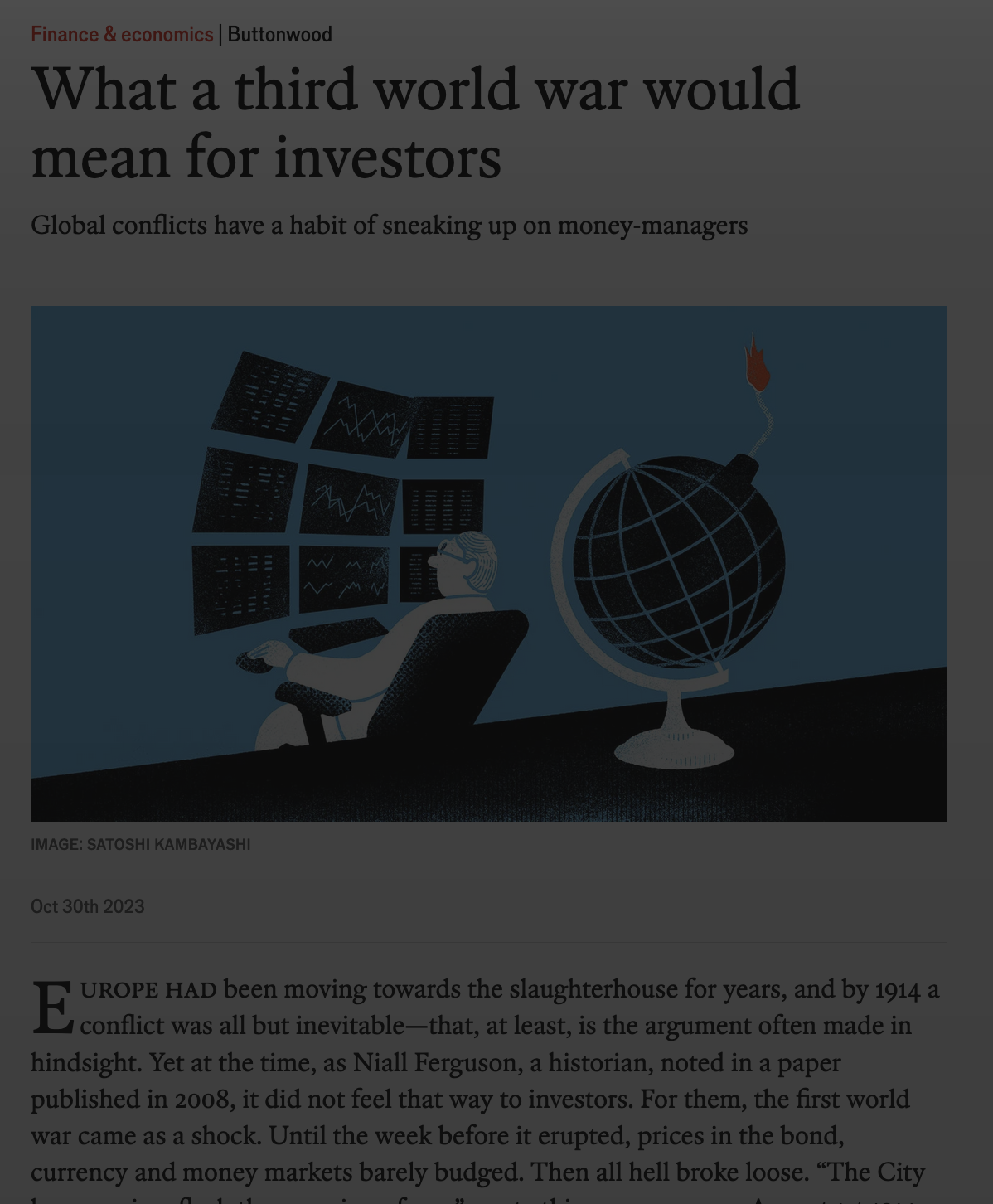This might sound ridiculous to you.
But, it does matter. Ultimately, those in charge determine whether there would be a war or not. That’s why their perspective matters.
It’s ultimately because a war does enormous harm and throws the country’s progress back by decades why the rich are (or should be) against war. That is a very important message that can have a lot of influence on the world!
The problem is that in the era of Imperialism, war is a necessity to certify new markets and redraw Imperial lines. The US provokes war in order to secure new markets for financial domination. It isn’t about progress, it’s about plunder.
Liberals - Dont worry guyz we can vote capitalism away!
Liberal and fascist are just two sides of capitalisms coin.
Exactly. Fascism and liberalism are both superstructural elements arising from the Capitalist base, liberalism in better times and fascism in dire times. They aren’t really distinct ideologies so much as they are the same ideology in different circumstances, and this lets liberalism pretend it can beat fascism.
What’s worse is none of this is new, our access to it seemingly is, but the wall street journal has been a bastion of shit like this for decades
And WSJ is not even the worst, since it sometimes publish at least real data. But look at rag like the Economist which was purely capitalist propaganda since day one which was so long ago even Marx himself was around to note it’s an organ of aristocracy of finance.
Is that top right image from a real Economist post or it is edited? I did not find it by simple search (search is so sloppy of late).
Edit: Link to article.
Europe had been moving towards the slaughterhouse for years, and by 1914 a conflict was all but inevitable—that, at least, is the argument often made in hindsight. Yet at the time, as Niall Ferguson, a historian, noted in a paper published in 2008, it did not feel that way to investors. For them, the first world war came as a shock. Until the week before it erupted, prices in the bond, currency and money markets barely budged. Then all hell broke loose. “The City has seen in a flash the meaning of war,” wrote this newspaper on August 1st 1914.
Could financial markets once again be underpricing the risk of a global conflict? In the nightmare scenario, the descent into a third world war began two years ago, as Russian troops massed on the Ukrainian border. Today Israel’s battle against Hamas has the frightening potential to spill across its borders. American military support is crucial to both Ukraine and Israel, and in Iraq and Syria the superpower’s bases have come under fire, probably from proxies of Iran. Should China decide it is time to take advantage of a distracted superpower and invade Taiwan, America could all too easily end up being drawn into three wars at once. The rest of the world risks those wars interlocking and turning into something even more devastating.
Got it via their website jumping over walls. From October 2023, not that that diminishes it’s sting.







